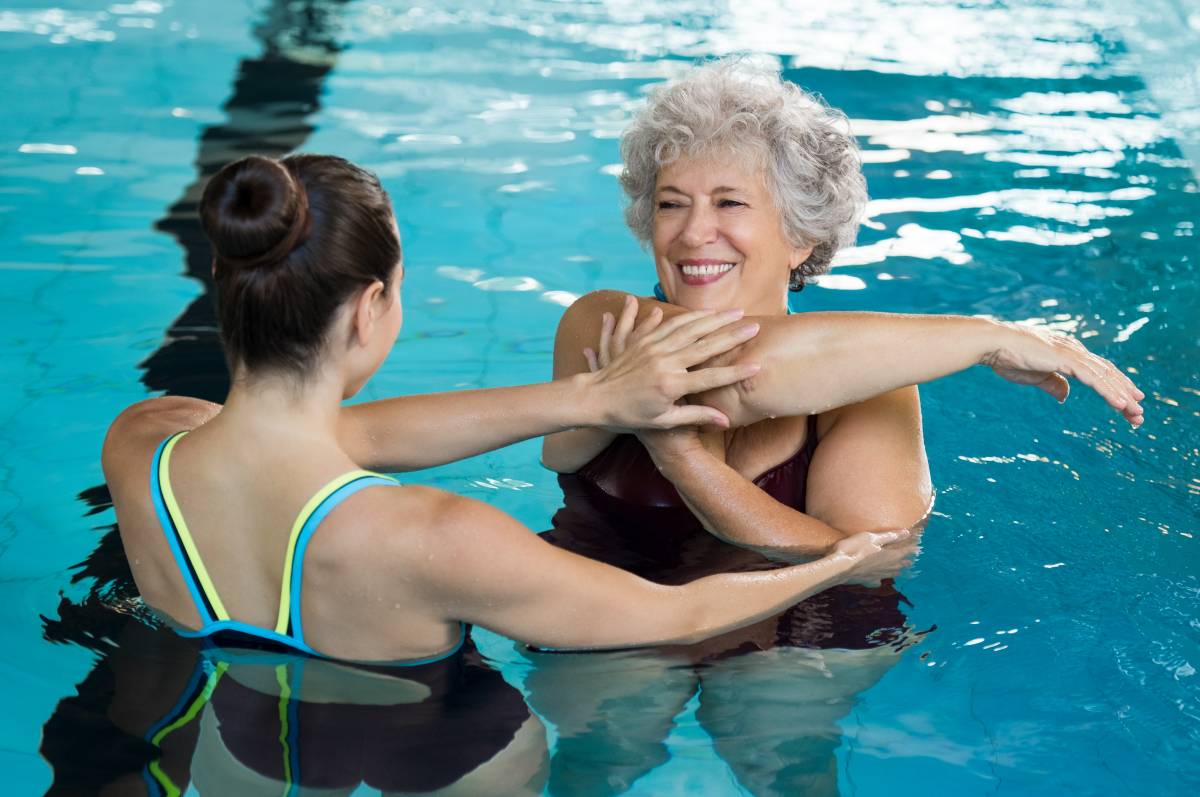NICE draft guideline emphasises exercise and weight loss rather than drugs in osteoarthritis care
The potential benefits of exercise for people with osteoarthritis have been extolled in a new draft guideline issued today (29 April) by the National Institute for Care and Health Excellence (NICE).
Two physiotherapists – Nicky Wilson and Jonathan Quicke – sat on the 10-member core committee that drew up the draft guideline. Clinicians and members of the public have until 15 June to respond to the guideline.
The committee endorsed evidence showing that offering tailored exercises – such as muscle strengthening and aerobic exercise – to people with osteoarthritis can achieve good outcomes.

Weight loss options
Clinicians should consider helping people with osteoarthritis who are overweight to choose a weight loss goal that will help them to help manage symptoms. Losing weight can have a significant impact on health outcomes for a range of conditions, but it can also help to reduce joint pain for people with osteoarthritis, the guidelines stresses.
there is evidence which shows muscle strengthening and aerobic exercise can have an impact on not just managing the condition, but also providing people with an improved quality of life [Paul Chrisp, NICE]
Paul Chrisp, director at the NICE Centre for Guidelines, said: ‘Osteoarthritis can cause people discomfort and prevent them from undertaking some of their normal daily activities.
'However, there is evidence which shows muscle strengthening and aerobic exercise can have an impact on not just managing the condition, but also providing people with an improved quality of life. Beginning that journey can be uncomfortable for some people at first, and they should be supported and provided with enough information to help them to manage their condition over a long period of time.’
Certain painkillers not recommended
Dr Chrisp said that though using non-steroidal anti-inflammatory drugs topically and, at times, orally remained an ‘important treatment option’ in cases of osteoarthritis, the draft guideline did not recommend using painkillers such as paracetamol and some opioids for osteoarthritis.
‘This is because new evidence has shown there was little or no benefit to people’s quality of life, pain or psychological distress and particularly in the case of strong opioids, there was evidence that they can cause harm in the longer term, including possible addiction,' Dr Chrisp noted.
The draft guideline also recommends diagnosing osteoarthritis clinically without the need for imaging in people who are aged 45 or over, have activity-related joint pain and, have either no morning joint related stiffness or morning stiffness lasting no longer than 30 minutes.
Manual therapy
The introduction to a section in the draft guideline on manual therapy states that the benefits of exercise for people with some forms of osteoarthritis is 'well established'. 'Manual therapy may also help provide a benefit for some joints by increasing mobility and reducing pain. There are a variety of techniques including passive stretching, soft tissue techniques and acupressure/trigger point therapy.'
The introduction adds: 'There is no standard current practice relating to the provision of manual therapy for people with osteoarthritis, the use of this management approach is left to the discretion and expertise of the treating healthcare professional. As manual therapy needs to be delivered in a face-to-face context, there is potentially a resource implication for offering manual therapy in a system in which remote consultations are employed.'
Factfile on osteoarthritis
- it is caused by changes in the whole joint that can cause discomfort and pain
- it is the most common form of arthritis, and one of the leading causes of pain and disability worldwide
- about 7.4 million people in England aged over 45 identified have the condition
- knees, hips and small hand joints are the most affected
Physiotherapist committee members
Physiotherapist committee member Nicky Wilson is a lecturer in physiotherapy at the University of Southampton and is a consultant physiotherapist at King’s College Hospital in south London.
Jonathan Quicke is described as being an academic clinical lecturer in physiotherapy: osteoarthritis and long-term conditions at Keele University. Dr Quicke is also listed as being a Haywood Foundation activity coordinator.
To see the full version of the draft guideline, titled Osteoarthritis: Care and Mangement (update), visit: https://www.nice.org.uk/guidance/indevelopment/gid-ng10127/consultation/html-content-2
Author: Ian A McMillanShare it with














